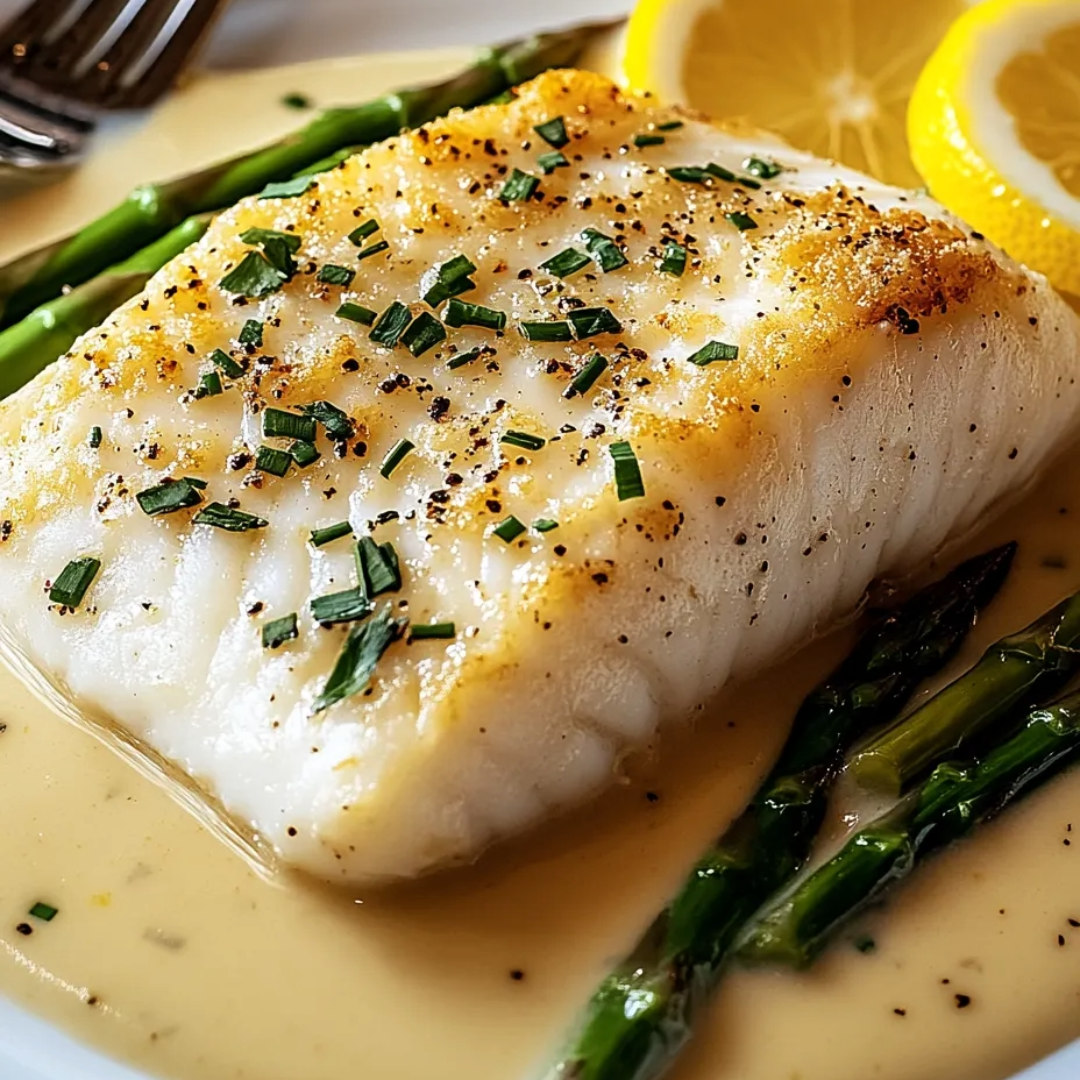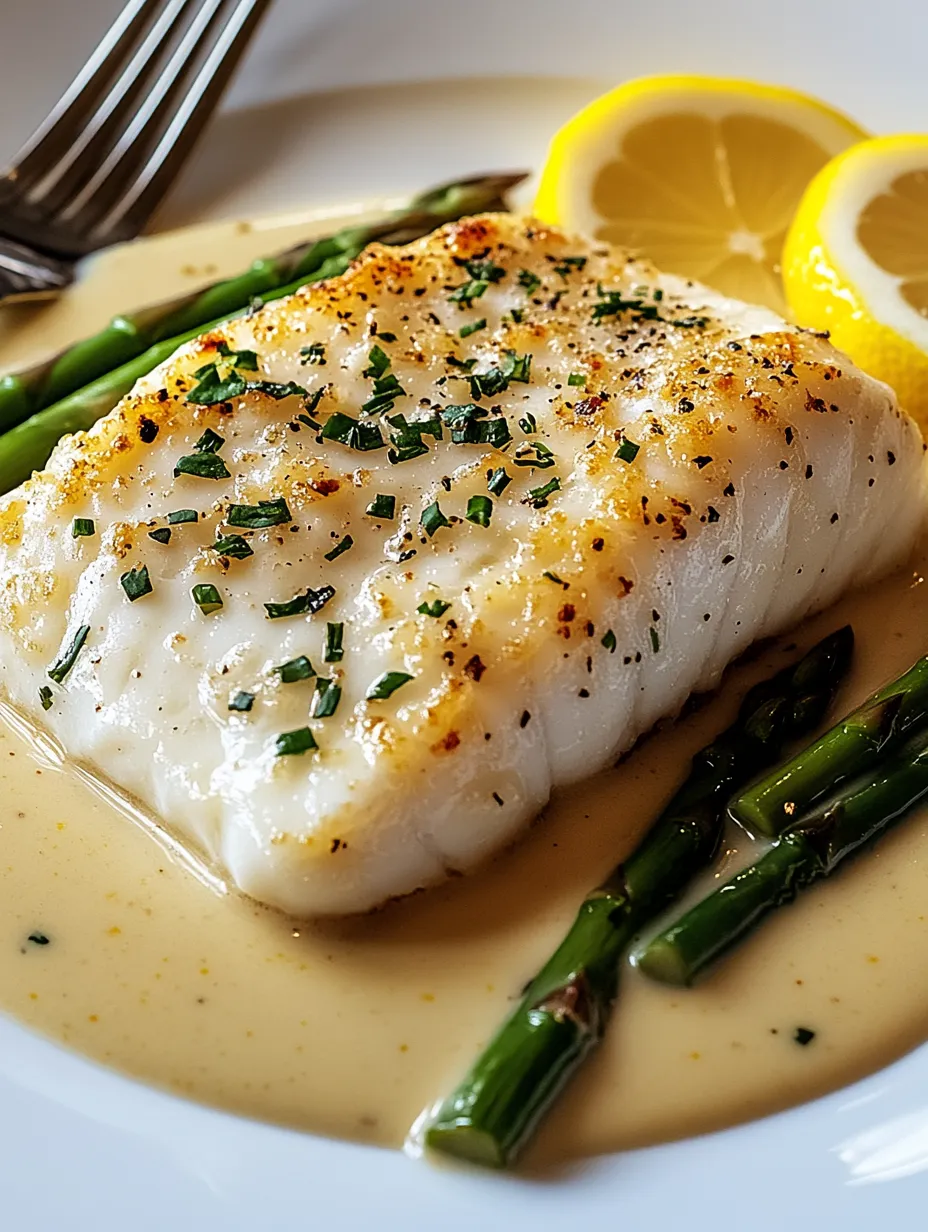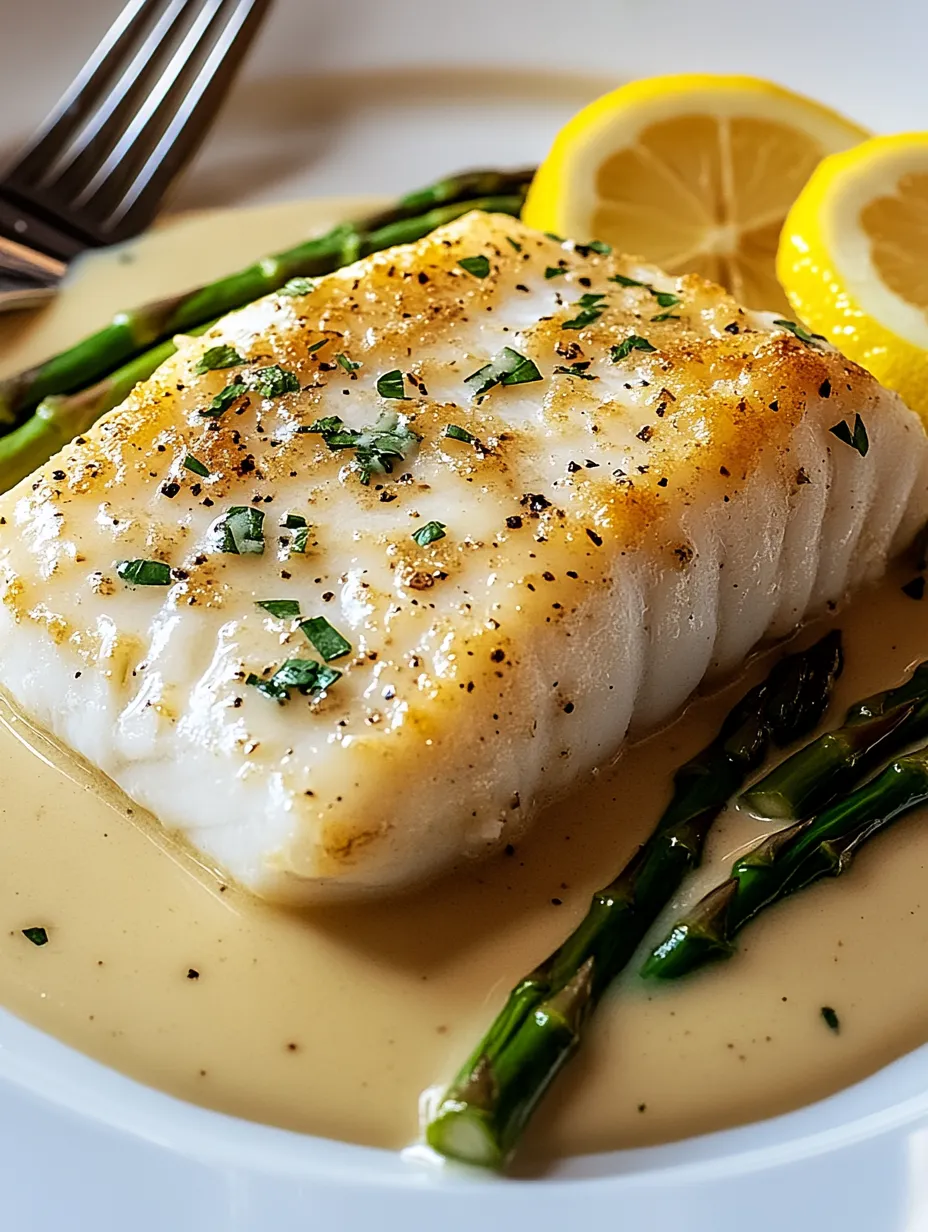 Pin it
Pin it
Creamy baked halibut transforms delicate white fish into an elegant, restaurant-worthy entrée with minimal effort and maximum flavor. This luxurious dish bathes tender halibut fillets in a velvety sauce infused with fresh herbs, bright lemon, and savory Parmesan cheese, creating the perfect balance of richness and freshness. Whether you're hosting a special dinner party or simply elevating a weeknight meal, this recipe delivers sophisticated taste that belies its simple preparation – a true culinary gem that proves extraordinary meals need not require extraordinary effort.
I first made this dish for an anniversary dinner at home when I wanted something special without spending hours in the kitchen. My husband, who usually prefers meat over fish, was completely won over by the tender halibut and luxurious sauce. It's since become our go-to recipe whenever we want to make an ordinary evening feel like a celebration!
Ingredients and Selection Tips
- Halibut: Look for firm, translucent fillets with no strong fishy smell; wild-caught is preferable for the best flavor
- Heavy Cream: Use full-fat for the richest sauce; the higher fat content prevents curdling during baking
- Fresh Herbs: Thyme and parsley provide brightness; substitute with dill or basil for variation
- Lemon: Both zest and juice add essential acidity to balance the rich cream
- Parmesan Cheese: Freshly grated melts more smoothly than pre-packaged varieties
 Pin it
Pin it
Detailed Cooking Instructions
- Step 1:
- Begin by preheating your oven to 375°F (190°C) and lightly greasing a baking dish large enough to accommodate your halibut fillets without crowding. This proper preparation ensures even cooking and makes cleanup easier.
- Step 2:
- Place the halibut fillets in your prepared baking dish, arranging them in a single layer with a small space between each piece. This spacing allows the heat to circulate properly around each fillet, promoting even cooking throughout.
- Step 3:
- Drizzle 2 tablespoons of olive oil over the fish, then season each fillet with a portion of the salt and pepper, gently rubbing the seasonings and oil onto all sides of the fish. The oil helps the seasonings adhere while preventing the fish from drying out during baking.
- Step 4:
- Allow the seasoned fish to rest at room temperature for about 5 minutes while you prepare the sauce. This brief resting period takes the chill off the fish, promoting more even cooking and allowing the seasonings to penetrate slightly.
- Step 5:
- In a medium saucepan, melt 2 tablespoons of unsalted butter over medium heat until it begins to foam. Add 1 tablespoon of minced garlic and sauté for 1-2 minutes until fragrant but not browned. Careful timing prevents the garlic from becoming bitter.
- Step 6:
- Pour ½ cup of heavy cream into the saucepan with the garlic and butter, then add 1 teaspoon each of fresh thyme and chopped parsley, along with 1 teaspoon of lemon zest. Bring this mixture to a gentle simmer, stirring occasionally to prevent scorching.
- Step 7:
- Allow the cream mixture to simmer gently for 3-4 minutes until it begins to thicken slightly. The reduction concentrates the flavors while creating a sauce that will coat the fish beautifully without being too runny.
- Step 8:
- Stir ½ cup of freshly grated Parmesan cheese into the simmering cream until completely melted and incorporated. Follow with 1 tablespoon of fresh lemon juice, stirring to combine. The acid in the lemon juice helps balance the richness of the cream and cheese.
- Step 9:
- Taste the sauce and adjust the seasoning with additional salt and pepper as needed. Remember that Parmesan cheese adds saltiness, so add salt gradually and taste as you go to avoid over-seasoning.
- Step 10:
- Pour the finished sauce evenly over the halibut fillets, ensuring each piece is generously coated. Place the baking dish in the preheated oven and bake for 25-30 minutes, until the fish flakes easily with a fork and the sauce is bubbling around the edges with a light golden color.
I learned these tips through trial and error when perfecting this recipe. The first time I made it, I slightly overcooked the halibut while waiting for the sauce to thicken more. Now I know the sauce continues to thicken after coming out of the oven, and I focus on the doneness of the fish instead.
 Pin it
Pin it
The first time I served this dish to guests, I was amazed at how something so simple to prepare could generate such enthusiastic praise. What I love most about this recipe is how it elevates a few quality ingredients into something that tastes truly special. The cream sauce, infused with herbs and brightened by lemon, transforms the mild-flavored halibut into a memorable meal that feels indulgent yet isn't overly heavy. While there are certainly more complex fish preparations out there, this creamy baked halibut strikes that perfect balance between impressive and approachable – the kind of recipe that becomes a cherished part of your cooking repertoire because it reliably delivers both comfort and elegance in equal measure.
Frequently Asked Questions
- → Can I substitute another fish for the halibut?
- Yes! This creamy sauce works well with other firm white fish like cod, sea bass, or haddock. Adjust cooking time based on the thickness of your fillets - thinner fillets will cook faster than thick halibut steaks.
- → How do I know when the fish is done?
- Halibut is properly cooked when it reaches an internal temperature of 145°F (63°C) and flakes easily with a fork. The flesh should be opaque and no longer translucent. Be careful not to overcook halibut as it can become dry and tough.
- → Can I make this dish ahead of time?
- While it's best served fresh, you can prepare the sauce up to a day ahead and refrigerate it. When ready to bake, gently reheat the sauce before pouring over the fish. The assembled dish doesn't hold well for reheating, as the fish can become overcooked.
- → What sides pair well with this halibut?
- This rich fish dish pairs beautifully with simple sides like steamed asparagus, roasted vegetables, or a light green salad. For starches, try roasted fingerling potatoes, wild rice, or orzo pasta. A crusty bread is perfect for soaking up the extra sauce.
- → How can I make this recipe dairy-free?
- For a dairy-free version, substitute the heavy cream with full-fat coconut milk or a cashew cream. Replace the butter with olive oil or a plant-based butter, and either omit the Parmesan or use a dairy-free Parmesan alternative. The flavor profile will change somewhat but will still be delicious.
